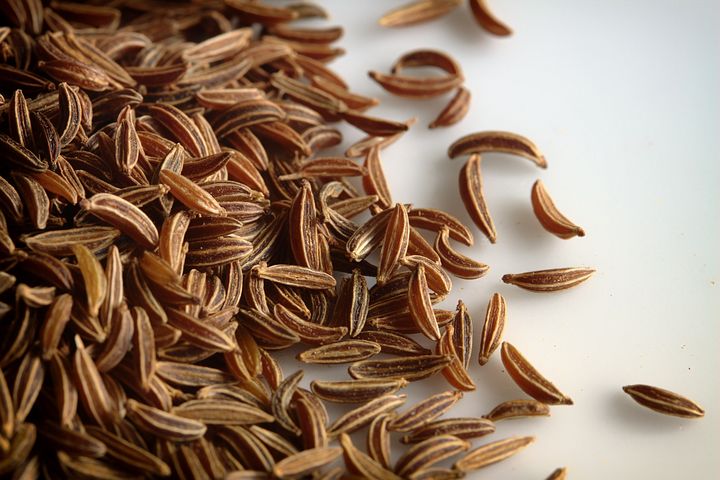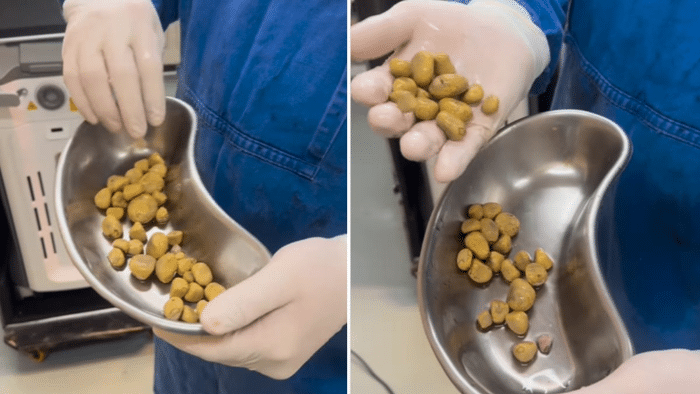Seeds have all the crucial ingredients necessary for growing into a healthy plant. Seeds contain a lot of fiber. Levels of polyunsaturated and monounsaturated fats and several minerals, vitamins, and antioxidants are also high in seeds.
Featured Image VIA
As a result, seeds can help lower levels of blood sugar, blood pressure and cholesterol, when consumed. That shows how beneficial seeds are for your health.
This post will discuss the nutritional value and health advantages of six of the most nutritious seeds available.
Different Types of Seeds For Cholesterol Relief
Let’s discuss a few of the best seeds to help you reduce cholesterol.
Flax Seeds
Flaxseed is a nutrient-dense food. Flaxseed includes 6 grams of fiber and 4 grams of protein in only two tablespoons. It also has a lot of alpha-linolenic acids, which is an omega-3 fatty acid.
According to specific research, flaxseed eating improves cardiovascular health. Flaxseed may also help with cancer prevention since it contains lignan. It’s simple to incorporate flaxseed into your diet. Salads, yogurt, smoothies, cereal, and soups all benefit. Make muffins out of it.
Pine Nuts
Pine nuts are high in vitamin A, thiamin, riboflavin, niacin, vitamin E, copper, iron, manganese, and phosphorus. These seeds include high levels of linoleic acid, a fatty acid that helps in appetite suppression naturally.
In addition, pine nuts include mono-saturated fats, known to lower cholesterol levels in the bloodstream, reducing the risk of heart attack and stroke. Like the seeds, you can use them in salads, yogurts, trail mixes, muffins, and veggie meals.
Watermelon Seeds
Watermelon seeds have long been hailed as a superfood, and with good reason. They’re higher in protein than almonds and peanuts, and they’re also high in magnesium and zinc. Magnesium aids in blood pressure and blood sugar control.
Iron, niacin, and folate are also abundant in them. B-vitamins niacin and folate help the nervous system and digestive system promote good skin. In addition, watermelon seeds include beneficial lipids demonstrated to lower inflammation and enhance blood cholesterol levels.
Chia Seeds
Chia seeds are high in omega-3 fatty acids and can help decrease blood sugar and lower risk factors for heart disease. Chia seeds are also high in fiber and include a many nutrients.
Chia seeds also be beneficial for controlling blood sugar levels. Chia seeds, both whole and ground, are equally effective at lowering your level of blood sugar after a meal. In addition, chia seeds reduce the risk factors of heart disease by lowering blood cholesterol.
Hemp Seeds
Hemp seeds and a Cannabis flower are high-protein food that includes all of the essential amino acids. They contain more than 35% of protein, many necessary nutrients and amino acids that your body doesn’t produce.
The hemp seed oil has a 3:1 ratio of omega-6 to omega-3 lipids. Hemp seeds also include gamma-linolenic acid, an anti-inflammatory fatty acid that boosts the quantity of omega-3 fatty acids in the blood, which is good for heart health. You can get great deals online.
Sesame Seeds
Sesame seeds aid in reducing oxidative stress and inflammation as they have a diverse nutrient profile. Many lignans, particularly one named sesamin, fall into this category. Several studies show that sesamin from sesame seeds can transform into another type of lignan named enterolactone by your gut bacteria.
Levels of lignan in the body that are lower are linked to breast cancer and heart disease. In addition, blood cholesterol levels were much lower after taking 50 grams of sesame seed powder every day for five weeks.
Pumpkin Seeds
Pumpkin seeds and pumpkin seed oil are high in monounsaturated and omega-6 fatty acids, which may aid with heart health and urinary problems. Pumpkin seeds are a good source of monounsaturated fats, phosphorus, and fatty acids. Furthermore, they are one of the most popular types of seeds.
Pumpkin seeds also have high levels of phytosterols, plant substances helpful for lowering blood cholesterol levels. Due to their vast spectrum of nutrients.
Pomegranate Seeds
Pomegranate seeds, also known as arils, are high in fiber and provide 40% of your daily vitamin C needs. They also include polyphenols, including flavonoids, tannins, and anthocyanin, heart-healthy antioxidants.
Anti-inflammatory properties, aiding in the fight against prostate cancer, protecting against breast cancer, and lowering blood pressure and cholesterol are just a few health benefits. Polyphenols, including flavonoids, tannins, and anthocyanins, are heart-healthy antioxidants.
Basil Seeds
These black seeds look similar to chia seeds and offer immense health benefits. These seeds are native to India and are packed with essential fats, protein, carbs and fiber.
Surprisingly, they contain no calories and are beneficial for health as they are packed with fiber, support gut health, aid in blood sugar control, and are a good source of minerals.
Sunflower Seeds

Image VIA
Sunflower seeds contain vitamin E, magnesium, protein, linoleic fatty acids, and numerous plant chemicals, which may help decrease blood pressure, cholesterol, and blood sugar. Sunflower seeds include a chemical that inhibits an enzyme that causes blood vessels to contract.
Sunflower seeds include magnesium, which helps to regulate blood cholesterol. Sunflower seeds are very high in unsaturated fatty acids, particularly linoleic acid. Your body converts linoleic acid into a hormone-like molecule that relaxes blood vessels and lowers blood pressure. This fatty acid also aids in the reduction of cholesterol.
Rajgira Seeds
This seed, often known as amaranth seeds, is high in fiber, protein, and other minerals. Iron, manganese, magnesium, and phosphorus are all abundant in them.
As a result, it helps the brain operate properly and protects against some neurological disorders. In addition, it is high in antioxidants and helps to reduce inflammation while also promoting bone health. You can eat Rajgira seeds in a variety of ways.
Apricot Kernels
Apricot kernels are one of the healthiest seeds to eat since they are high in nutrients. For example, it contains Vitamin B17, which helps to prevent cancer. B17 is one of the few nutrients found in a vegan diet. Therefore, apricot kernels should be included in one’s diet to get the most out of the nutrients.
Grape Seeds
Using them has various health advantages, including lower blood pressure, lower blood flow, lower cholesterol levels, and reduced oxidative damage. It also boosts collagen levels and bone strength, helps the brain age gracefully, enhances renal function, lowers cancer risk, and safeguards liver health.
In addition, grapes are high in flavonoids, Vitamin E, and polyphenylenes, all of which are beneficial to the body. High blood pressure and cholesterol can be avoided by eating grape seeds.
Caraway Seeds

Image VIA
Caraway seeds, also known as cumin, have been used for their therapeutic powers and health benefits. It aids in the treatment of digestive issues and has antibacterial effects. Caraway seeds are a good source of iron as well. It aids metabolism and is beneficial to one’s health.
Final Thoughts
Seeds are high in healthy fats, vegetarian protein, fiber, and antioxidant polyphenols, all beneficial to your health. They can also assist in lowering the risk of certain diseases. In particular, lignans found in certain seeds may help cut cholesterol and cancer risk.
Seeds are a simple method to add healthy nutrients to your diet and may be easily added to salads, yogurt, cereal, and smoothies.















